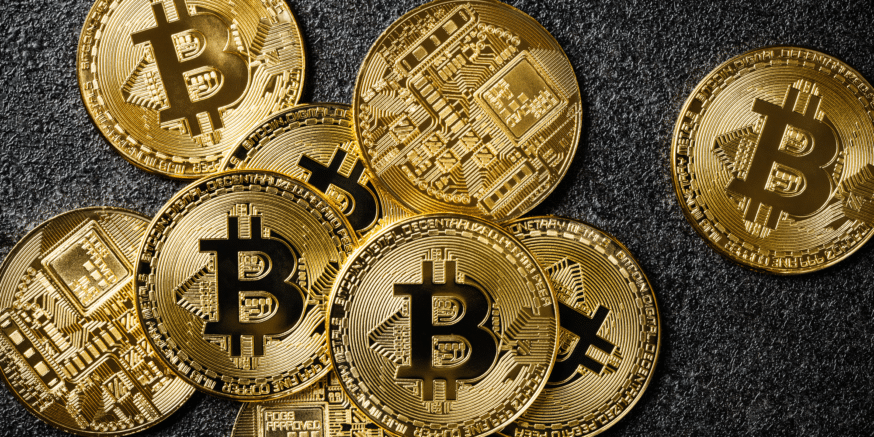- Using Digital Tokens in 2018
- Saving vs. Spending: Which Will Ultimately Win?
- Current Obstacles to Using Digital Tokens
- The Difference Between Security Tokens and Utility Tokens
- Utility vs. Security: Regulations Are Emerging
- Conclusion: Understanding the Future Uses of Digital Token Systems
Cryptocurrencies, also referred to as digital tokens, are rapidly emerging to play an important role in the global economy. As discussed previously, digital tokens have the potential to be the future of electronic cash.
As government regulations continue to emerge along with new technical innovations, these forms of payment will gain more use cases. We’re also seeing more emphasis on defining how digital token systems are classified. In this article, we explain some of the current uses for digital tokens. We also look at how defining the differences between security tokens and utility tokens will help to shape the future use of digital tokens.
Using Digital Tokens in 2018
In recent years, the total number of places accepting digital tokens has increased significantly. Like most new technologies, digital token systems were initially quite rudimentary. Just a few years ago, the number of digital tokens on the market was minimal, and many people were unaware of what function they would play in the global economy. Today, however, it’s evident that cryptocurrencies are starting to make existing financial institutions more efficient and could possibly create an entirely new financial infrastructure.
Even before 2018, we saw many major companies begin to accept digital tokens. These places include Overstock.com, Expedia, and Shopify.
Nonetheless, the use of cryptocurrencies hasn’t become so popular that someone can make a majority of purchases with digital tokens in a practical manner. This could soon change, though. A few announcements in 2018 have created more possibilities for mainstream adoption of digital tokens. For example, in August 2018, Starbucks announced that it’s teaming up with Microsoft, Intercontinental Exchange (owner of the New York Stock Exchange), and others to create a new digital currency platform called Bakkt.

Saving vs. Spending: Which Will Ultimately Win?
Since 2017, the public has become more aware of what digital tokens are. This is in large part due to the market’s biggest bull run to date. Digital token systems have the potential to transform the way people send and receive peer to peer (P2P) payments. However, the volatility of digital token values has made it difficult for many users to understand when digital tokens should be used.
Some users view digital tokens as an investment and are waiting on mainstream adoption and possible value increases. This is similar to how many investors interact with the stock market. However, amongst other differences, stocks were never intended to be treated as a form of currency. Other users view digital token systems as the best way to send P2P payments, similar to how people use fiat currency (i.e. US Dollars, Euros, Rubles, etc.)
Ultimately, the saving versus spending debate is important because it helps define how people perceive digital tokens.
Current Obstacles to Using Digital Tokens
The reality is that many barriers to mainstream adoption exist. Price volatility makes it difficult to put digital token price values on goods and services. In addition, technical limitations of the underlying blockchain technology must be solved before cryptocurrency can be used at scale for P2P payments.
Yes, it’s possible for users to trade fiat-to-crypto (and vice versa) via a cryptocurrency exchange. Then, users can pay an agreed upon token amount using the current equivalent fiat price. However, this payment method adds another degree of complication to commerce.
All of the factors mentioned above determine both short-term and long-term token price evaluations. The good news (hopefully) is that as more real-world uses for digital tokens exist, users will be more prepared to ultimately determine collectively what the value of one unit of a given token is worth.

The Difference Between Security Tokens and Utility Tokens
One of the largest debates in the cryptocurrency market is over whether new projects launching initial coin offerings (ICOs) should create a security token or a utility token.
There are a few major differences between these token categories. First, the purpose of a utility token is to offer current or future access to a given company’s product or service. There are projects offering tokens aimed at various sectors of the existing economy. These areas include real estate, healthcare, and many more.
In contrast, a security token gets its value from an external, tradable asset. In basic terms, security tokens represent shares of company stock. Despite this similarity, there are a lot of major differences between traditional shares and security tokens. Dividends, trading hours, fees, etc. are structured quite differently.
The distinctions listed above bring us to quite possibly the most important factor to user adoption of digital tokens: regulations.
Security tokens are subject to national securities regulations. Utility tokens, if structured properly, are not. This distinction is essential to understanding both the current and future uses of digital token systems. As a result, we are beginning to see more projects emphasize the creation of utility tokens over security tokens.

Utility vs. Security: Regulations Are Emerging
In 2018, government regulations have had a major impact on the future of digital tokens. While new policies could emerge to change the market, what we have seen is that governments are starting to make decisions on the classification of digital tokens.
In the US, for example, the state of Wyoming passed the “Utility Token Bill”, which ruled that a token must not be offered as an investment. Any token must be a vehicle for exchange as a utility token.
At the national level, the United States’ SEC ruled that the Ether is not a security token. The combination of laws and rulings are making it much simpler to understand which tokens truly are utility tokens and which are merely using this name to circumvent regulations.
Conclusion: Understanding the Future Uses of Digital Token Systems
In the early days of digital token systems, there were quite a few obstacles to real-world adoption. Price volatility, blockchain technical limitations, and a lack of definitive government regulations all presented major challenges. As these issues have begun to gradually become resolved, digital tokens have gained more popularity as a new type of P2P payment.
In 2018, we’re just beginning to see mainstream adoption ramp up. A number of recent partnerships between major B2C-focused corporations could mean that using digital tokens for a majority of daily purchases could soon become a reality.
[thrive_leads id=’5219′]
Never Miss Another Opportunity! Get hand selected news & info from our Crypto Experts so you can make educated, informed decisions that directly affect your crypto profits. Subscribe to CoinCentral free newsletter now.










